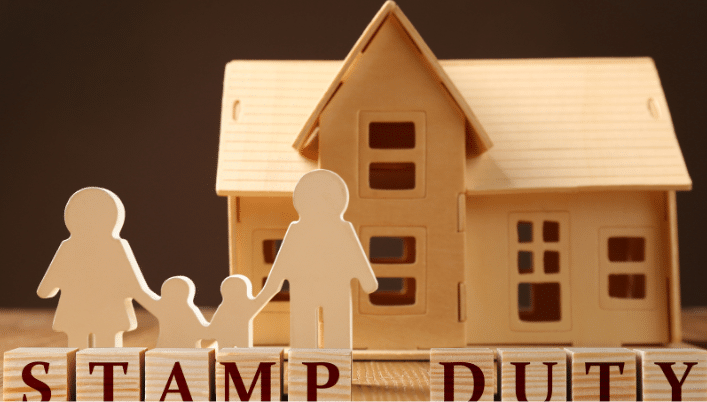
When inheriting property, various legal and financial matters need to be considered.
One important aspect is stamp duty, which is a tax imposed on property purchases.
In this article, we will explore whether stamp duty is payable on inherited property and delve into various factors and considerations associated with it.
Key Takeaways
- Inheritance Basics: Inheritance involves transferring assets and liabilities to beneficiaries after a person’s death, regulated by Singaporean laws. Stamp duties, and taxes on legal documents play a crucial role in property transfer.
- Singapore Inheritance Process: In Singapore, inheritance is governed by the Intestate Succession Act and Wills Act. Valid wills ensure assets are distributed according to the deceased’s wishes; without a will, laws of intestacy apply.
- Stamp Duty Importance: Stamp duties validate legal documents, including property transfers. They must be paid when transferring ownership of inherited properties to regulate transactions and ensure tax compliance.
- Payable Stamp Duty: Inherited property in Singapore is subject to stamp duty. Amounts vary based on property type and value, impacting the transfer of ownership.
- HDB Inheritance: Inheriting an HDB flat includes legal responsibilities like obtaining a Grant of Probate. Stamp duty for inherited HDB flats is calculated using the property’s market value.
- Stamp Duty Relief: First-time buyers of inherited properties can seek stamp duty relief if they meet eligibility criteria. Relief reduces the financial burden, making property acquisition more affordable.
- Overseas Properties: Stamp duty is applicable to overseas inherited properties as well. Seek professional advice to understand and comply with foreign regulations.
- Landed Properties: Stamp duty rates for landed inherited properties range from 0.4% to 3% based on property value and the relationship between the deceased and beneficiary.
- Minimizing Stamp Duty: Strategies to minimize stamp duty include utilizing exemptions and reliefs and seeking professional advice to ensure compliance and optimize tax efficiency.
- Legal Expertise: Hiring tax consultants or property lawyers can help navigate stamp duty regulations, reducing the tax burden while staying within legal bounds.
Introduction to Inheritance and Stamp Duties
Inheritance refers to the transfer of assets and liabilities after a person’s death to their beneficiaries.
This process is regulated by laws and regulations in Singapore to ensure a fair distribution of assets.
One important aspect to consider in inheritance is the payment of stamp duties.
Stamp duties are taxes levied on specific documents, such as property transactions and legal agreements.
These duties are crucial in inheritance matters as they have a direct impact on the transfer of property ownership.
What is inheritance and how does it work in Singapore?
Inheritance is the process by which assets, including properties, are transferred from one individual to another after their death.
In Singapore, the process of inheritance is governed by the Intestate Succession Act and the Wills Act.
If a person passes away without leaving a will, their assets will be distributed according to the laws of intestacy.
On the other hand, if a person leaves a valid will, the assets will be distributed according to their wishes as stated in the will.
What are stamp duties and why are they important in inheritance?
Stamp duties are taxes imposed on legal documents to validate them and make them legally binding.
In the context of inheritance, stamp duties are crucial because they need to be paid when transferring ownership of inherited properties.
These duties help regulate property transactions and ensure that the necessary taxes are paid to the government.
Is stamp duty payable on inherited property in Singapore?
Yes, stamp duty is payable on inherited property in Singapore.
When a property is inherited, the beneficiary is required to pay stamp duties on the transfer of ownership.
The amount of stamp duty payable depends on various factors, such as the type of property and its value.
Exploring Property Tax and Inheritance Scenarios in Singapore

What is the tax implication when inheriting an HDB flat?
When inheriting an HDB flat, the beneficiary may be required to pay certain taxes, including stamp duty.
The stamp duty payable depends on the relationship between the deceased and the beneficiary.
If the beneficiary is a Singapore citizen and a family member of the deceased, they may be eligible for a concessionary rate of stamp duty.
Are stamp duties payable on other types of inherited properties?
Yes, stamp duties are payable on other types of inherited properties as well.
Whether it is a landed property, a condominium, or a commercial property, the beneficiary will generally be required to pay stamp duties on the transfer of ownership.
What are the stamp duty rates for inherited residential properties?
The stamp duty rates for inherited residential properties vary depending on the value of the property and the relationship between the deceased and the beneficiary.
For example, if the beneficiary is a spouse of the deceased, they may be entitled to a reduced rate of stamp duty.
On the other hand, if the beneficiary is not a family member of the deceased, they may be subject to a higher rate of stamp duty.
Types of Inherited Properties and Their Tax Implications
What are the different types of inherited properties in Singapore?
There are various types of inherited properties in Singapore, including HDB flats, landed properties, and private condominiums.
Each type of property has its own tax implications and stamp duty rates.
How does the stamp duty vary for different types of inherited properties?
The stamp duty payable on different types of inherited properties varies based on factors such as the value of the property and the relationship between the deceased and the beneficiary.
For example, the stamp duty rates for a landed property may be higher compared to a HDB flat.
It is essential to understand the specific stamp duty rates applicable to the type of property being inherited.
Are there any exemptions or reliefs available for inherited properties?
Yes, there are exemptions and reliefs available for inherited properties in Singapore.
For instance, if the inherited property is the main residence of the deceased, the beneficiary may be able to claim a remission of stamp duty.
Additionally, if the beneficiary is a family member of the deceased and intends to sell the property within a specific time frame, they may be eligible for the Seller’s Stamp Duty (SSD) remission.
The Role of Stamp Duty in Property Inheritance

What is the purpose of stamp duty in property inheritance?
The purpose of stamp duty in property inheritance is to ensure that proper taxes are paid when transferring property ownership from the deceased to the beneficiary.
Stamp duty helps regulate property transactions and ensures that the government receives the necessary taxes.
How is stamp duty calculated for inherited properties?
Stamp duty for inherited properties is calculated based on the market value of the property at the time of inheritance.
The stamp duty rates applicable for residential properties are determined by the Singapore Land Authority (SLA) and are subject to periodic revisions.
What are the consequences of not paying stamp duty on inherited property?
Not paying the required stamp duty on inherited property can have serious consequences.
Firstly, it is a legal requirement to pay stamp duty on the transfer of property ownership.
Failure to do so may result in penalties and legal consequences.
Additionally, non-payment of stamp duty can create complications during future property transactions or when claiming ownership rights over the inherited property.
Unveiling the Stamp Duty Land Tax (SDLT) Rates for Inherited Properties
What are the specific stamp duty rates for inherited properties?
The specific stamp duty rates for inherited properties in Singapore depend on various factors, including the value of the property and the relationship between the deceased and the beneficiary.
It is advisable to consult the latest stamp duty rates provided by the SLA or seek professional advice to determine the exact stamp duty payable for a particular inherited property.
What are the eligibility criteria for availing lower stamp duty rates?
The eligibility criteria for availing lower stamp duty rates vary depending on the specific circumstances of the inheritance.
In general, if the beneficiary is a family member of the deceased, they may be entitled to lower stamp duty rates.
However, it is important to note that eligibility criteria and rates are subject to change, so it is crucial to stay updated with the latest regulations.
How does the holding period affect the stamp duty rates for inherited properties?
The holding period refers to the duration for which the inherited property is held by the beneficiary.
In some cases, the holding period can affect the stamp duty rates.
For example, if the beneficiary sells the inherited property within a certain period, they may be subject to the Additional Buyer’s Stamp Duty (ABSD).
The specific rules and rates regarding the holding period are determined by the government and may vary based on the individual’s circumstances.
Navigating Capital Gains Tax and Stamp Duty on Property Inheritance
Understanding the impact of capital gains tax on inherited property
Capital gains tax is applicable when you sell an inherited property and make a profit.
It is important to note that the cost basis for capital gains tax purposes is typically the fair market value of the property at the time of inheritance.
This means that if you sell the inherited property for more than its value at the time of inheritance, you may be subject to capital gains tax on the difference.
However, if the property is sold for less than its value at the time of inheritance, you may be eligible for a capital loss.
Exploring the implications of stamp duty on inherited residential properties
The implications of stamp duty on inherited residential properties depend on the situation.
In most cases, stamp duty is not payable on inherited property unless there are specific circumstances involved.
For example, if the inherited property is sold or transferred to someone who is not a spouse, civil partner, or a charity, stamp duty may be applicable based on the property’s value.
It is important to consult with a professional to understand the specific stamp duty implications in your situation.
How does the Singaporean government calculate stamp duty for inherited properties?
In Singapore, stamp duty is calculated based on the purchase price or market value of the property, whichever is higher.
When it comes to inherited properties, the stamp duty payable depends on various factors, such as the relationship between the deceased and the heir, the ownership status of the inherited property, and the value of the property.
Understanding these factors is essential in determining the stamp duty charges for inherited properties.
Factors Influencing Stamp Duty Charges on Inherited Residential Properties

Examining the value of the inherited property and its impact on stamp duty
The value of the inherited property plays a significant role in determining the stamp duty charges.
Singapore has a progressive stamp duty system with different tax rates for different bands of property value.
The higher the value of the inherited property, the higher the stamp duty charges are likely to be.
It is important to keep this in mind when assessing the overall cost of inheriting a property.
How does the relationship between the deceased and the heir affect stamp duty charges?
The relationship between the deceased and the heir can influence the stamp duty charges on inherited residential properties.
In Singapore, stamp duty rates are generally lower for properties inherited by family members within the same family nucleus, such as spouses, parents, and children.
On the other hand, if the inherited property is transferred to someone who is not within the family nucleus, higher stamp duty charges may apply.
Considering the ownership status of the inherited property and its influence on stamp duty
The ownership status of the inherited property can also affect the stamp duty charges.
If the inherited property is a private property or additional property, higher stamp duty charges may apply.
On the other hand, if the property is the first residential property for the heir, different stamp duty rates and relief schemes may be applicable.
It is important to understand the ownership status and its implications on stamp duty charges before making any property-related decisions.
Impact of Maintenance Fees on Inherited Property and Stamp Duty
Understanding the role of maintenance fees in determining stamp duty charges for inherited property
Maintenance fees are an important consideration when it comes to determining stamp duty charges for inherited property.
In Singapore, maintenance fees are typically paid by the property owner to cover the costs of maintaining shared facilities and services within a development.
These fees are not included in the calculation of stamp duty charges but can impact the overall cost of owning the inherited property.
Exploring the tax implications of maintaining an inherited property
When it comes to maintaining an inherited property, there may be certain tax implications to consider.
If the inherited property is rented out and generates rental income, the income will be subject to income tax.
It is important to report the rental income and fulfill the necessary tax obligations to avoid any penalties or legal issues.
Understanding the tax implications of maintaining an inherited property can help in managing the overall cost and ensuring compliance with tax laws.
How do maintenance fees affect the overall cost of owning an inherited property?
Maintenance fees can significantly impact the overall cost of owning an inherited property.
These fees can vary depending on the development and the facilities provided.
It is important to factor in the costs of maintenance fees when assessing the financial feasibility of owning an inherited property.
Property owners should budget for these fees to ensure they can cover the expenses and avoid any financial strain.
Examining Stamp Duty Relief for First-Time Buyers of Inherited Properties
Understanding the eligibility criteria for stamp duty relief on inherited properties for first-time buyers
First-time buyers of inherited properties may be eligible for stamp duty relief under certain conditions.
In Singapore, first-time buyers are defined as individuals or families who have not owned any residential properties before.
To be eligible for stamp duty relief, first-time buyers must meet specific criteria and comply with the necessary regulations set by the Singaporean government.
It is important to understand these criteria and seek professional advice when applying for stamp duty relief.
Exploring the potential savings and benefits of stamp duty relief
Stamp duty relief for first-time buyers of inherited properties can result in significant savings.
By qualifying for relief, buyers can enjoy a reduced or even waived stamp duty charge, which can significantly lower the overall cost of acquiring the inherited property.
These savings can provide a financial boost and make property acquisition more affordable for first-time buyers.
How can first-time buyers of inherited properties apply for stamp duty relief?
First-time buyers of inherited properties can apply for stamp duty relief through the Inland Revenue Authority of Singapore (IRAS).
The application process typically involves providing the necessary documentation and meeting the eligibility criteria.
It is advisable to seek professional assistance to ensure a smooth application process and maximize the chances of obtaining stamp duty relief.
Singaporean Regulations: Inheritance Tax vs.Stamp Duty on Property
Understanding the difference between inheritance tax and stamp duty on property
It is important to distinguish between inheritance tax and stamp duty on property in Singapore.
Inheritance tax is a tax imposed on the value of an estate upon the death of the owner.
However, in Singapore, there is no inheritance tax.
On the other hand, stamp duty is a tax payable on the purchase or transfer of property.
While the two concepts are related to property inheritance, they are distinct in their application and impact on property owners.
Exploring the current regulations and policies regarding inheritance tax and stamp duty in Singapore
In Singapore, as mentioned earlier, there is no inheritance tax.
The Singaporean government imposes stamp duty on property transactions, which includes the purchase or transfer of inherited properties.
The regulations and policies regarding stamp duty are periodically reviewed and updated, so it is important to stay informed about the latest changes and comply with the existing requirements.
How do the rates of inheritance tax and stamp duty compare in Singapore?
As previously mentioned, Singapore does not have an inheritance tax.
The rates of stamp duty, on the other hand, vary depending on the value of the property and the ownership status.
Stamp duty rates for private properties and additional properties are generally higher compared to owner-occupied properties.
It is necessary to consult official sources or seek professional advice to obtain the exact property tax rate applicable in a specific scenario.
Practical Considerations for Inheriting an HDB Flat and Paying Stamp Duty
What are the practical considerations for inheriting an HDB flat?
Inheriting an HDB flat brings both emotional and practical considerations.
From a practical standpoint, it is essential to understand the legal responsibilities and obligations that come with being a beneficiary of inherited property.
As a beneficiary, it is crucial to ensure proper documentation, such as obtaining a Grant of Probate.
This legal document is required to prove the personal representatives’ authority to deal with the deceased’s estate, including the inherited property.
How is stamp duty calculated for inherited HDB flats?
When it comes to stamp duty, the calculation for inherited HDB flats is based on the market value of the property at the time of the deceased owner’s death.
The stamp duty rates depend on various factors, such as the relationship between the deceased and the beneficiary, the residency status of the beneficiary, and the property’s value.
It’s important to note that stamp duty rates differ for owner-occupied and non-owner-occupied properties.
Are there any exemptions or reliefs for stamp duty on inherited HDB flats?
Exemptions and reliefs for stamp duty on inherited HDB flats can be availed under certain circumstances.
For instance, if the beneficiary of the inherited HDB flat is the surviving spouse, the stamp duty payable may be waived.
Additionally, if the inherited HDB flat is sold within a certain period, there may be relief from stamp duty charges.
Understanding Additional Buyer’s Stamp Duty (ABSD) for Inherited Properties

What is ABSD?
Additional Buyer’s Stamp Duty, commonly known as ABSD, is a tax imposed on certain property purchases in Singapore.
The purpose of ABSD is to regulate property demand and curb speculative buying.
It is important to understand that ABSD is separate from the regular stamp duty and applies to various property transactions, including inherited properties.
Who is liable to pay ABSD on inherited properties?
When it comes to inherited properties, the liability to pay ABSD depends on the individual’s residency status and the number of properties they own.
If the inheritor is a Singapore citizen or a Permanent Resident (PR) and already owns one property, they may be required to pay ABSD on the inherited property.
How is ABSD calculated for inherited properties?
The calculation of ABSD for inherited properties takes into account the individual’s residency status and the number of properties they own.
The rates vary depending on these factors.
For example, Singapore citizens enjoy lower ABSD rates compared to foreign individuals.
Higher ABSD rates may apply to individuals who already own multiple properties or foreign purchasers.
Handling Stamp Duty Charges for Overseas Inherited Properties
Is stamp duty payable on overseas inherited properties?
Stamp duty is not only applicable to properties within Singapore but also to overseas inherited properties.
When inheriting a property located outside Singapore, it is crucial to understand the stamp duty requirements of that specific country.
Different countries may have different regulations and tax rates concerning inherited properties.
Are there any differences in the stamp duty rates for overseas inherited properties?
Yes, there can be differences in stamp duty rates for overseas inherited properties compared to properties in Singapore.
Each country has its own stamp duty regulations and rates, which may vary depending on factors such as the property’s value, location, and the relationship between the deceased and the beneficiary.
How can one handle stamp duty charges for overseas inherited properties?
To handle stamp duty charges for overseas inherited properties, it is advisable to consult with professionals knowledgeable in the legal and tax requirements of the specific country.
These experts can provide guidance on the stamp duty rates, exemptions, and any other applicable charges.
A Closer Look at Stamp Duty on Landed Inherited Properties

What is the stamp duty rate for landed inherited properties in Singapore?
The stamp duty rate for landed inherited properties in Singapore is determined based on the property value and the relationship between the deceased and the beneficiary.
The rates can range from 0.
4% to 3% of the property’s market value.
How is stamp duty calculated for landed inherited properties?
The calculation of stamp duty for landed inherited properties considers the property value and the relationship between the deceased and the beneficiary.
The rates vary depending on these factors.
It’s important to note that stamp duty rates for landed properties may differ from those of other property types, such as HDB flats or private residential properties.
Are there any exemptions or reliefs for stamp duty on landed inherited properties?
Exemptions or reliefs for stamp duty on landed inherited properties may be available under certain circumstances.
For instance, if the beneficiary intends to retain the inherited property as their primary residence, they might be eligible for a lower stamp duty rate or even a waiver of the duty.
Exploring Strategies to Minimize Stamp Duty on Inherited Properties
What strategies can be used to minimize stamp duty on inherited properties?
There are several strategies one can employ to minimize stamp duty on inherited properties.
One approach is utilizing legal exemptions and reliefs that may apply to the specific situation, such as those based on the relationship between the deceased and the beneficiary.
Additionally, one can explore options like selling an existing property to avoid higher stamp duty rates on multiple property ownership.
Are there any legal ways to reduce the amount of stamp duty payable on inherited properties?

Yes, there are legal ways to reduce the amount of stamp duty payable on inherited properties.
As mentioned earlier, understanding and leveraging the available exemptions and reliefs can help minimize the tax burden.
Seeking professional advice from tax specialists or property experts can provide valuable insights on the legal ways to reduce stamp duty payments.
Can hiring professionals help in minimizing stamp duty on inherited properties?
Absolutely.
Hiring a professional, such as a tax consultant or property lawyer, can greatly assist in minimizing stamp duty on inherited properties.
These professionals possess the knowledge and expertise to navigate the complex rules and regulations surrounding stamp duty.
They can provide tailored advice and develop strategies to optimize tax efficiency while ensuring compliance with the applicable laws.
Conclusion
Embarking on the journey of inheritance can be both emotional and enlightening.
As we’ve delved into the intricate realm of property inheritance and the associated stamp duties, a world of considerations and possibilities has unfolded.
From understanding the process of inheritance to deciphering stamp duty intricacies, we’ve unearthed a wealth of knowledge that promises to empower you on this path.
Imagine the thrill of discovering strategies to minimize stamp duty, harnessing exemptions and reliefs tailored to your unique circumstances.
Envision the potential savings and benefits awaiting those who navigate these intricacies wisely.
But this journey isn’t meant to be embarked upon alone.
As you embark on your inheritance journey, remember that professional guidance can be your compass.
Tax consultants, property experts, and legal advisors stand ready to help you navigate these intricate landscapes.
They possess the expertise to ensure that you not only comply with regulations but also make informed decisions that align with your financial goals.
From the heart of Singapore to the world beyond, the mysteries of inherited property tax are yours to decipher.
Take these insights, arm yourself with knowledge, and step confidently into a future where property inheritance is not just a transition but a transformation.
The path is illuminated, and the possibilities are endless.
Your legacy awaits, and so does the adventure of understanding and mastering the world of inherited property taxes.
Frequently Asked Questions
Is stamp duty payable on inherited property?
Yes, stamp duty is payable on inherited property in Singapore.
What is stamp duty?
Stamp duty is a tax that is payable on the transfer of property ownership in Singapore.
Do I need to pay stamp duty if I inherit a property?
Do I need to pay stamp duty if I keep the inherited property?
Yes, even if you decide to keep the inherited property, you may still need to pay stamp duty.
What type of property is subject to stamp duty?
Both residential and non-residential properties in Singapore are subject to stamp duty
How much stamp duty do I need to pay?
The amount of stamp duty payable depends on the value of the property you inherited and the stamp duty rates in place at the time of the transfer.
Is stamp duty the same as property tax?
No, stamp duty and property tax are different.
Stamp duty is paid upon the transfer of property ownership, while property tax is an annual tax based on the value of the property.
What happens if I don't pay stamp duty on my inherited property?
If you fail to pay the required stamp duty on your inherited property, you may face penalties and legal consequences.
Can I avoid paying stamp duty on my inherited property?
It is not advisable to try to avoid paying stamp duty on your inherited property.
Singapore has strict property laws and attempts to evade stamp duty can result in legal consequences.
Will I need to pay more stamp duty if I already own another property?
Yes, if you already own another property in Singapore, you may need to pay higher stamp duty on your inherited property.
The amount of stamp duty payable is determined by the number of properties you own.












